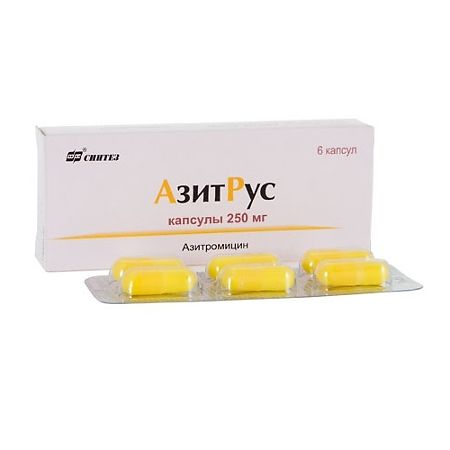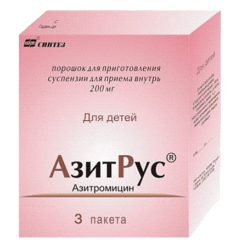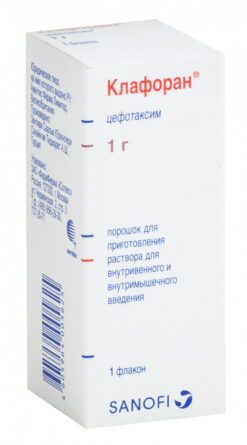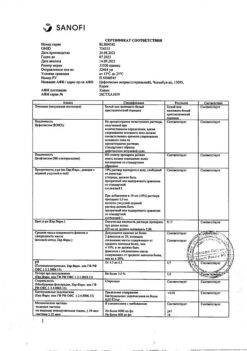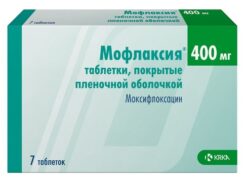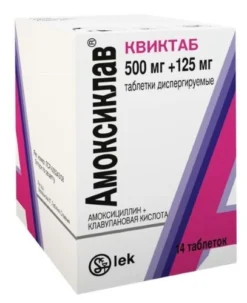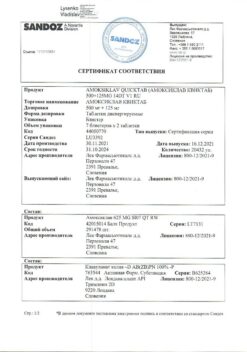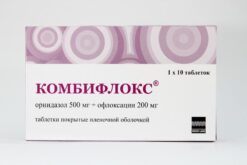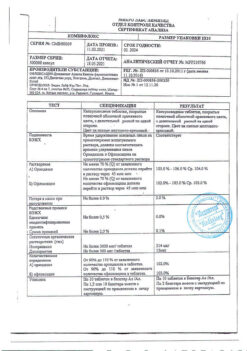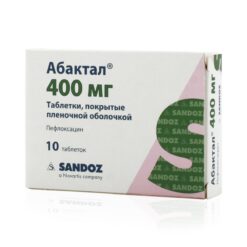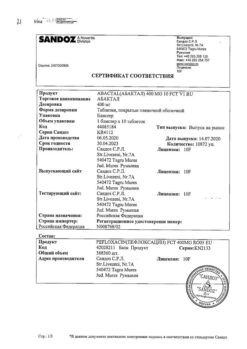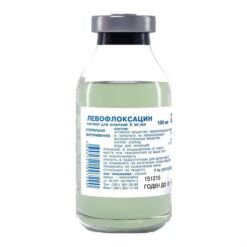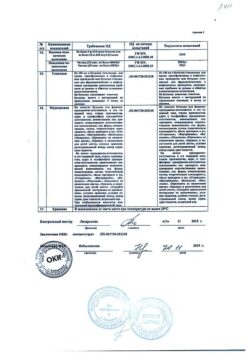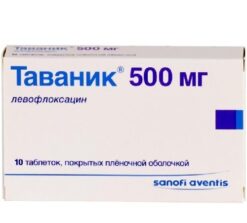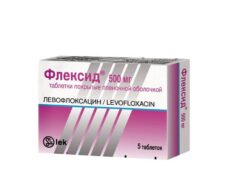No products in the cart.
AzitRus, 250 mg capsules 6 pcs
€1.00
Out of stock
(E-mail when Stock is available)
Description
AzitRus is a broad-spectrum antibiotic of the macrolide group, azalid.
It acts bacteriostatically.
Binding to the 50S-subunit of the ribosome, it inhibits protein synthesis and inhibits bacterial growth and reproduction.
AzitRus in high concentrations has a bactericidal effect.
It acts on extra- and intracellular pathogens
Indications
Indications
Infectious and inflammatory diseases caused by microorganisms sensitive to the drug:
– infections of the upper respiratory tract and ENT organs (including tonsillitis, sinusitis, tonsillitis, pharyngitis, otitis media);
— infections of the lower respiratory tract (including bacterial and atypical pneumonia, bronchitis);
– infections of the skin and soft tissues (including erysipelas, impetigo, secondary infected dermatoses);
– urinary tract infections (gonorrheal and non-gonorrheal urethritis);
— infections of the reproductive system (including cervicitis);
– scarlet fever;
— Lyme disease (borreliosis) in the initial stage (erythema migrans);
– diseases of the stomach and duodenum associated with Helicobacter pylori (as part of combination therapy).
Pharmacological effect
Pharmacological effect
AzitRus is a broad-spectrum antibiotic of the macrolide group, azalide.
Acts bacteriostatically.
By binding to the 50S ribosomal subunit, it inhibits protein synthesis and slows down the growth and reproduction of bacteria.
AzitRus in high concentrations has a bactericidal effect.
Acts on extra- and intracellular pathogens
Special instructions
Special instructions
AzitRus should not be taken with meals.
If a dose is missed, the missed dose should be taken as soon as possible, and subsequent doses should be taken at intervals of 24 hours.
It is necessary to observe a break of at least 2 hours between doses of the drug AzitRus and antacid drugs.
After discontinuation of the drug, hypersensitivity reactions may persist in some patients; in such cases, it is recommended to prescribe specific therapy under medical supervision.
Active ingredient
Active ingredient
Azithromycin
Composition
Composition
1 capsule contains azithromycin (in dihydrate form) 250 mg
Contraindications
Contraindications
renal failure;
liver failure;
lactation (breastfeeding);
children up to 6 months (for suspension);
children under 3 years of age and/or body weight less than 25 kg (for capsules);
children under 12 years of age and/or body weight less than 50 kg (for film-coated tablets);
hypersensitivity to the components of the drug, as well as to other macrolides.
The drug is prescribed with caution to patients with cardiac arrhythmias (possible ventricular arrhythmias, prolongation of the QT interval), children with severe renal or liver dysfunction, and during pregnancy.
Side Effects
Side Effects
From the digestive system: possible – diarrhea (5%), nausea (3%), abdominal pain (3%); 1% – flatulence, vomiting, melena, cholestatic jaundice, increased activity of liver transaminases; in children – constipation, loss of appetite, gastritis, candidiasis of the oral mucosa, changes in taste.
From the cardiovascular system: palpitations, chest pain.
From the central nervous system: dizziness, headache, drowsiness; in children – headache (in the treatment of otitis media), hyperkinesia, anxiety, neurosis, sleep disorders.
From the urinary system: nephritis.
From the reproductive system: vaginal candidiasis.
Allergic reactions: rash, urticaria, itching, angioedema; in children – conjunctivitis, itching, urticaria.
Interaction
Interaction
With simultaneous use of antacids (aluminum- and magnesium-containing), ethanol and food slow down and reduce the absorption of azithromycin.
When azithromycin was used together in therapeutic doses with warfarin, no changes in prothrombin time were observed, however, given that the interaction of macrolides with warfarin may enhance the anticoagulant effect, when prescribing this combination to patients, careful monitoring of prothrombin time is necessary.
With simultaneous use, the concentration of digoxin in the blood plasma increases.
With simultaneous use, the toxic effect (vasospasm, dysesthesia) of ergotamine and dihydroergotamine increases.
With simultaneous use, clearance decreases and the pharmacological effect of triazolam increases.
Azithromycin inhibits microsomal oxidation in hepatocytes, which leads to a slower elimination and increased plasma concentrations and toxicity of cycloserine, indirect anticoagulants, methylprednisolone, felodipine, as well as drugs subject to microsomal oxidation (carbamazepine, terfenadine, cyclosporine, hexobarbital, ergot alkaloids, valproic acid, disopyramide, bromocriptine, phenytoin, oral hypoglycemic agents, xanthine derivatives, including theophylline).
Lincosamines reduce the effectiveness of azithromycin.
Tetracycline and chloramphenicol enhance the effectiveness of azithromycin.
Overdose
Overdose
Symptoms: nausea, temporary hearing loss, vomiting, diarrhea.
Treatment: gastric lavage, symptomatic therapy.
Storage conditions
Storage conditions
In a dry place, protected from light, at a temperature not exceeding 25 °C
Shelf life
Shelf life
2 years
Manufacturer
Manufacturer
Sintez, Russia
Additional information
| Shelf life | 2 years |
|---|---|
| Conditions of storage | In a dry, light-protected place at a temperature not exceeding 25 °C |
| Manufacturer | Sintez OAO, Russia |
| Medication form | capsules |
| Brand | Sintez OAO |
Other forms…
Related products
Buy AzitRus, 250 mg capsules 6 pcs with delivery to USA, UK, Europe and over 120 other countries.

